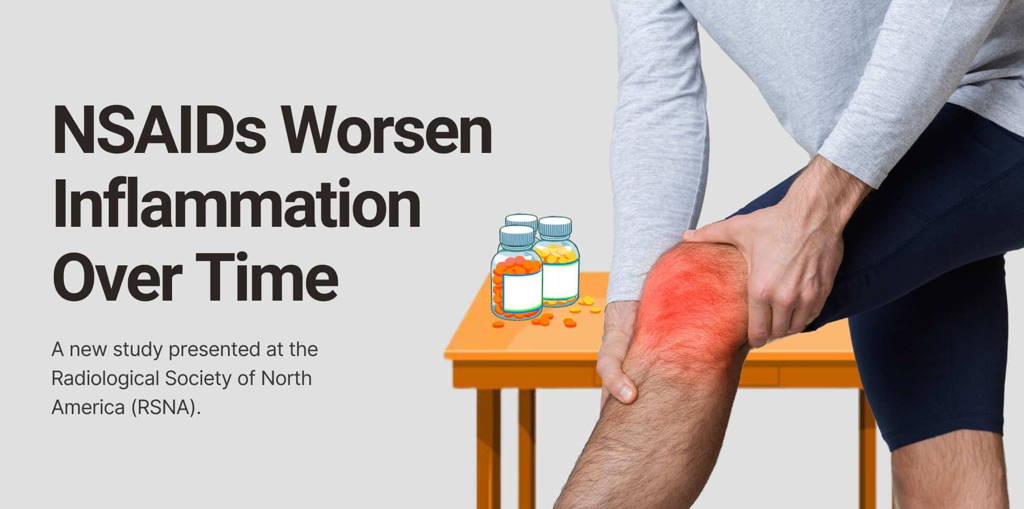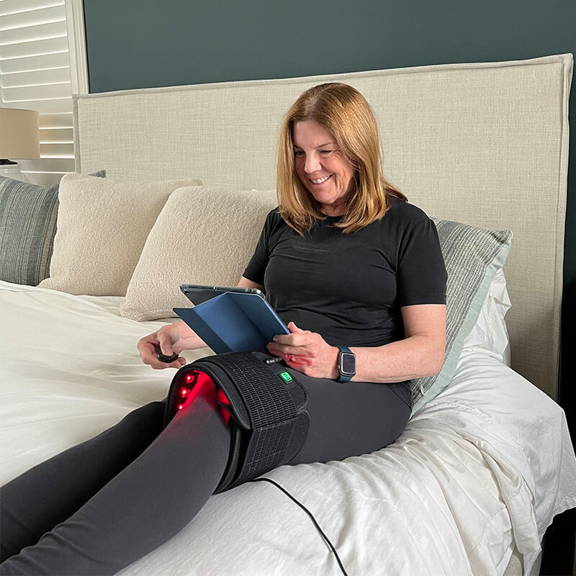
NSAIDs Worsen Inflammation Over Time
A recent study presented at the annual meeting of the Radiological Society of North America (RSNA) suggests that using non-steroidal anti-inflammatory drugs (NSAIDs) like ibuprofen and naproxen for osteoarthritis might exacerbate inflammation in the knee joint over time.
About The Author
Dr. Johanna Luitjens, the lead author of the study and a postdoctoral scholar at the University of California, San Francisco, explained that while NSAIDs are commonly prescribed to manage pain and inflammation associated with osteoarthritis, their long-term effects on disease progression have been relatively unknown.
The Study
The study aimed to analyze the connection between NSAID use and synovitis in knee osteoarthritis patients and understand how NSAID treatment influences joint structure over time. Synovitis plays a role in the development and progression of osteoarthritis and is considered a potential therapeutic target. The study aimed to determine whether NSAID treatment influences the development or progression of synovitis and assess the impact on cartilage using MRI-based structural biomarkers.
The study involved 277 participants with moderate to severe knee osteoarthritis who had received sustained NSAID treatment for at least one year. They were compared with a control group of 793 participants who did not use NSAIDs. All participants underwent knee MRI at the beginning of the study and again four years later, with images evaluated for biomarkers of inflammation.
The Results
The results showed that NSAID use did not provide long-term benefits. Participants using NSAIDs exhibited worse joint inflammation and cartilage quality at the study's start, which further deteriorated after four years. The study's findings challenge the widely held belief that NSAIDs have a positive impact on reducing joint inflammation or slowing down osteoarthritis progression in the knee.
Dr. Luitjens suggested that there could be several reasons for NSAID use increasing synovitis. One possibility is that the anti-inflammatory effect of NSAIDs might not effectively prevent synovitis, leading to the condition worsening over time. Another hypothesis is that patients with synovitis taking pain-relieving medications may become more physically active due to pain relief, potentially aggravating synovitis.
The Takeaway
The study's results indicate that the use of NSAIDs for managing knee osteoarthritis should be reevaluated, given the absence of demonstrated positive effects on joint inflammation.
The All New Cura ProWave Deep Healing Pad™ Is Now Available!
We've made our bestseller even better. Enjoy ground-breaking features for the most effective home therapy yet.

Multi-Wavelength Technology
Feel your pain melt away with our new multi-wavelength technology incorporating the 2x most bioactive wavelengths for photobiomodulation: 660nm and 850nm.

Pulsing+ Technology
Recover faster, boost performance, and treat specific symptoms with Pulsing+ Mode.


Triple Chip Medical LED Diode
Supercharge your cellular energy with an extra large treatment area, 120 LEDs and 360 light chips with an irradiance over 120 mW/cm2.

Hygiene+
Enjoy a soothing experience, optimal results, and superior hygiene with a detachable, flexible pad that isolates sweat and oil on the skin.
References



